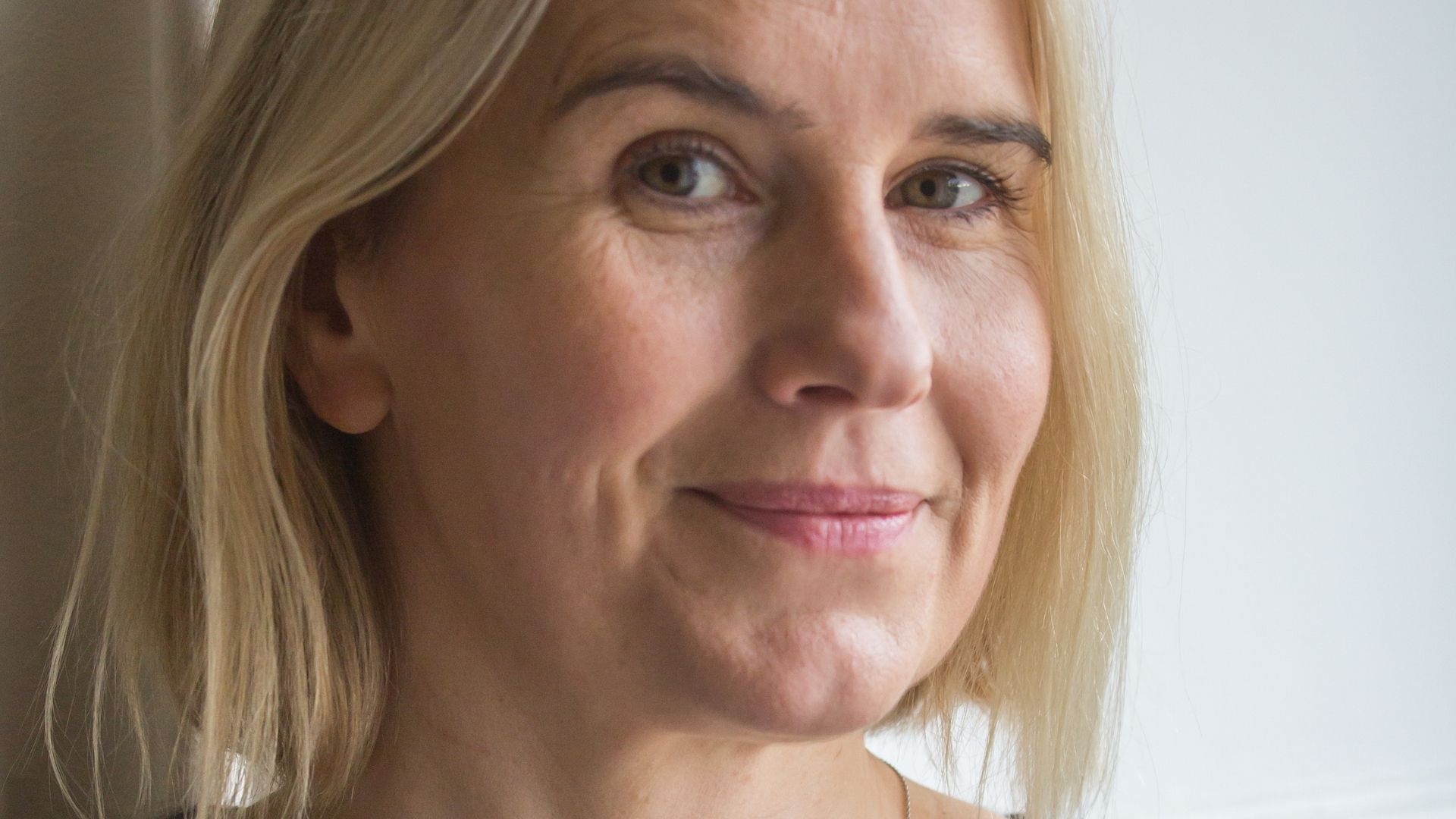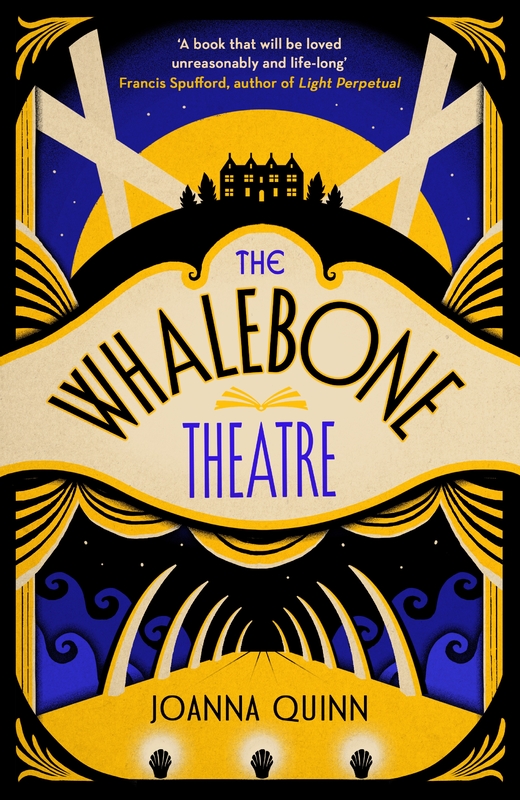You are viewing your 1 free article this month. Login to read more articles.
Joanna Quinn discusses her debut and the challenges of writing during lockdown
Ten years in the making, début novelist Joanna Quinn’s first work is a satisfyingly expansive tale beginning in 1919 and taking in the Second World War and its aftermath.
"My favourite reading experience, if I was going to choose one, would be a big, fat doorstop of a novel, so I always had in my mind that I would try to write the kind of book that I liked to read,” says first-time novelist Joanna Quinn. “The kind of multi-generational, big bed of a novel that you sink into.”
And that is exactly what she has done with The Whalebone Theatre, her immersive and absorbing début, which begins on the last day of December 1919 with the arrival of glamorous young socialite Rosalind, the new bride of older widower Jasper Seagrave, at his crumbling country pile, Chilcombe in Dorset. Jasper already has a daughter, Cristabel, who is three when she meets her new stepmother for the first time.
The novel follows Cristabel and later her new siblings, Rosalind’s children Flossie and Digby, through the years as they grow to adulthood and then through the Second World War and its aftermath. This is a substantial first novel with a large cast of characters, one that begins as a between-the-wars country house novel and builds to a gripping account of courage behind enemy lines in occupied France. It’s no surprise to learn The Whalebone Theatre has been nearly 10 years in the writing—during which time the author also worked full-time and had a baby.
When I do my research, I am always looking for the granular detail—the smell of the food, say—and I tried to inhabit it as much as I could
When she first started working on the novel, the comings and goings of one particular English country house was a national obsession—ITV had a massive hit with “Downton Abbey”—but Quinn knew her take would be quite different. She was interested in “what living in a big house would be like for a girl, a child, who has no claim to the house and isn’t important within the world of the house.” Cristabel is mostly ignored by the flighty, pleasure-seeking adults who surround her, which has the effect of nurturing her fierce, independent spirit as she roams around the estate, teaching herself about the world from books.
Coming of age
Rosalind may have little interest in Cristabel, but Quinn draws her with sensitivity, not a villainous stepmother but a product of her time. “I wanted to really think hard about how the restrictions of both gender and class are so damaging for the character of Rosalind, whose only real role or option in life is to marry well. That’s all she can do, that’s the only way she can leave home.” Jasper, the owner of Chilcombe, is similarly restricted, Quinn feels: “He is only expected to take on the house and follow his father. There’s nothing for him outside of that, so he is forced into making an unhappy second marriage.”
The novel’s unusual title refers to an actual theatre, made of—yes—whale bones; the Seagrave children, left to their own devices, use it to put on plays. Quinn explains that she learned, from reading Bella Bathurst’s The Wreckers, that all whales that wash up on the coast of England belong to the monarch—“I loved that fact!” She wanted to put a beached whale in the novel, but it wasn’t until she went to see Kate Bush in concert in 2014, with her “Before the Dawn” tour, “and she had this amazing stage set which at one point looked like the ribs of a whale”, that idea for a whalebone theatre was born.
The war changes the characters’ lives and forces them to draw on their own resource
As Cristabel grows to adulthood, she chafes against the restrictions of her class—she has no interest in becoming a débutante like Rosalind, or marriage—and then the Second World War intervenes, sending the three siblings on unexpected paths, ones they never could have imagined. Cristabel’s war takes her behind enemy lines in occupied France, a turn of events both thrilling and terrifying which Quinn makes fresh and immediate in the telling. She read a lot of first-hand accounts of the time, she says. “When I do my research, I am always looking for the granular detail—the smell of the food, say—and I tried to inhabit it as much as I could.”
The real challenge, she found, was to make sure all the parts of the book worked as a story: “I think with a big novel it’s hard to get far enough away from it that you can see the whole, particularly if you are trying to juggle writing with jobs and family stuff. You tend to write in quite small chunks and you’re just looking at what is right in front of you.”
So Quinn was plugging away at the novel at her home in Dorset while working full-time—she started her journalism career as a rookie reporter on a local paper, then moved into comms in the charity sector—when two unexpected things happened. First she was made redundant, but she wasn’t overly worried as she reckoned a new job would be relatively easy to find. Then lockdown hit and she was having to home-school as a single parent with no income. Luckily, she says, she had an understanding landlady. “But, like loads of people, I was wondering where I was going to get the money from to pay my rent.”
A little help from a friend
The Whalebone Theatre was “around four-fifths done” when a writer friend let her know that literary agent Clare Alexander was looking for things to read in lockdown. Quinn sent her what she had and Alexander immediately asked to see the whole thing. “I spent the rest of lockdown, when not home-schooling, typing like an absolute maniac to get it done. I didn’t really move from my dining room table for a good 10 months, with my overdraft getting steadily bigger.”
Happily for both Quinn and her landlady, the completed novel went to a four-way auction in the UK, with international rights sold in eight territories. The Whalebone Theatre has changed her life in other ways, too: “The war changes the characters’ lives and forces them to draw on their own resources, and through doing that they discover themselves and find out what they really want. I was thinking about how, in my own life, the pandemic did a very similar thing."
Extract
Their sparse factual education has a hefty coating of fiction. Their most treasured possessions are their books, most of which were liberated from the study by Cristabel in the glorious months of freedom after her father’s death, when everyone was preoccupied, and she had the run of the house.
As well as their beloved Greek myths and adventure stories, they also have a copy of Alice in Wonderland left by a departing governess and the girls have been named co-owners of a Tales from Shakespeare and an illustrated edition of “The Tempest” that Digby received at Christmas from his mother. Together they use them to stage productions in their cardboard theatre, as well as acting out scenes themselves in the attic, using a bedsheet pegged along a clothesline as a stage curtain. “The Tempest” always stars Digby as Ariel and the Veg as Miranda, with an impressive turn by Cristabel as Caliban. She enhances her performance as the grotesque slave creature by stashing walnuts in her cheeks to fill out her face in a bumpy and drooling manner.
“Like other families, we have lost people in the last year and it’s upsetting that people that I love won’t be around to see the book come out. But The Whalebone Theatre is also about carrying on despite loss, continuing to put on a show and celebrating when you can. It’s quite a poignant lesson, and a strange one, to think that fiction characters that you have made up entirely have something to teach you.”











